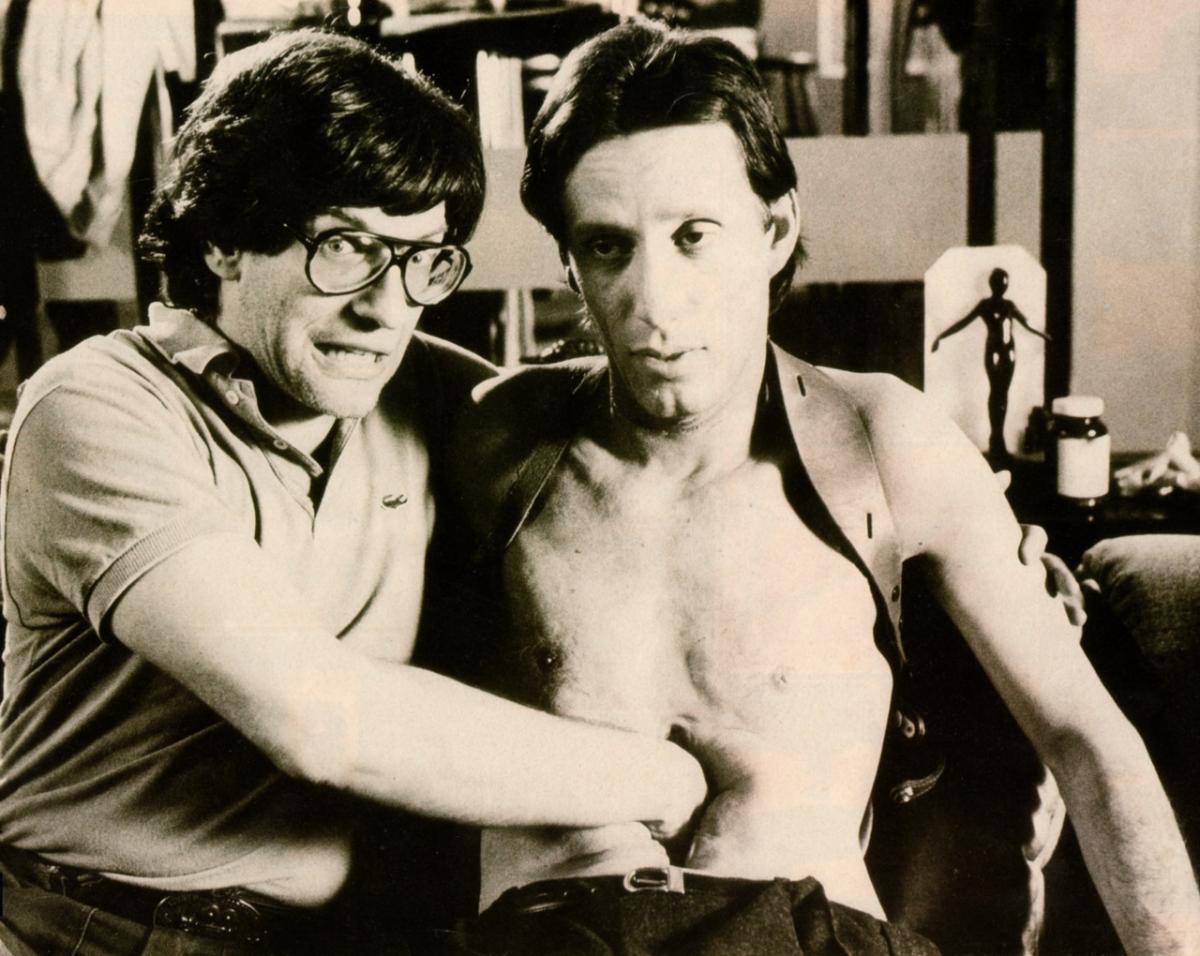When Max Renn goes looking for edgy new shows for his sleazy cable TV station, he stumbles across the pirate broadcast of a hyperviolent torture show called Videodrome. As he struggles to unearth the origins of the program, he embarks on a hallucinatory journey into a shadow world of right-wing conspiracies, sadomasochistic sex games, and bodily transformation.
“My greatest ambition is to turn into a TV programme.”
J. G. Ballard
“It’s just torture and murder. No plot, no characters. Very, very realistic. I think it’s what’s next.”
Max Renn in Videodrome
“The only director I can think of who has explored this grey land between art and porno-exhibitionism successfully – even brilliantly – again and again with never a misstep is the Canadian filmmaker David Cronenberg.”
Stephen King
“I have been a fan of David Cronenberg ever since I saw Rabid in a suburban multiplex when I was in my early 20s. He started as a genre filmmaker, but for me he was never genre, he was a science fiction auteur right from the beginning, and he has grown with almost every new film. Videodrome is one of his masterpieces, for me the most important. When I saw it, it struck me as the film perhaps in closer touch with the undercurrents of modern society than any other I had ever seen, a visionary work. At the time it didn’t even have a French distributor, and I did my best – I was writing for Cahiers du Cinéma – to lobby for its release. It has stayed with me since, and its daring, abstract, poetic imagery still haunts me.”
Olivier Assayas
“We have extended our central nervous system itself in a global embrace [...] rapidly, we approach the final phase of the extensions of man – the technological simulation of consciousness.”
Marshall McLuhan
“Likewise, with its juxtaposition of vivid grotesquerie and knowing reference to Toronto’s nationally pivotal media and finance sectors, Videodrome dramatizes McLuhan’s claim that new media are turning ‘the real world into science fiction’. The film depicts new media – which, at the time of the film’s cinematic release in 1983, meant videotape and computers – as technologies of globalization that serve the imperialist aspirations of multinational corporations. Moreover, these technologies are depicted as grotesque and horrific: monstrous in and of themselves, and in their effects on their users. As William Beard puts it, ‘the ‘organicization’ of technology – the ‘breathing’ cassettes and TV sets – acts to transfer technology into the intimate and personal realm of the body’. Videodrome horrifically dramatizes two of McLuhan’s main ideas by figuring their monstrous hybridization: the medium is the message, as becomes evident in the film’s literalization of O’Blivion’s claim that ‘reality is less than television’; and, moreover, the content of new media is not merely old media, as McLuhan often claimed – the content is, more vitally, the user her- or himself, as we learn in different characters’ recurring claims to herald ‘the new flesh.’”
Mark A. McCutcheon
« Videodrome condense toutes les inquiétudes d’une époque sur la place de l’image dans une société en déliquescence et fait preuve d’une lucidité prémonitoire face au monde à venir. Ce film qui réfléchit (dans tous les sens du terme) l’intériorisation des images a quelque chose de très soufi dans son approche, mais il affirme définitivement la perte de l’innocence du regard. Il y a dans ce film le désir de s’immerger, de s’absorber, d’arracher le voile du monde pour voir derrière, sous la surface des choses visibles. Et cela passe par la confrontation nécessaire à la violence du désir. »
Vincent Capes
“What pornography is really about, ultimately, isn’t sex but death.”
Susan Sontag
“‘Eroticism,’ Luis Buñuel told an interviewer, ‘is a diabolic pleasure that is related to death and rotting flesh.’ No filmmaker conveys this idea with more ingenuity and macabre gusto than David Cronenberg, whose movies (hilariously, terrifyingly) illustrate the equation of penetration with contagion and infection. The great Polish writer Witold Gombrowicz, anticipating Jean-Paul Sartre’s ‘in itself/for itself’ dichotomy by several years, identified ‘the interhuman’ as a perpetual re-creation of identity: simply by coming into contact, you create me and I create you, as different people than we were just before we encountered each other. [...]
Videodrome, prophetically for 1983 (and looking increasingly less like fiction), shows us a world of technological hyperdevelopment in which people merge with their electronic media. Like an autoimmune catastrophe, the boundary between our bodies and what’s outside them becomes indistinguishable. Like the unwary users of the hallucinogen Chew-Z, who can never come down from their trip, in Philip K. Dick’s psychedelic-era novel The Three Stigmata of Palmer Eldritch, anyone exposed to the Videodrome signal gets sucked into a never-ending hallucination controlled by someone else’s will. Whoever it goes into goes into it: it can bend the subject’s perceptions so drastically that the body itself alters form; its flesh melts into globs, sprouts machine parts, splits apart for use as a storage area. You can even patch a video into the person’s brain by inserting a cassette in his stomach. He can be programmed to kill, and he does.”
Gary Indiana
Nicki Brand: Got any porno?
Max Renn: You serious?
Yeah. It gets me in the mood. What’s this? Videodrome?
Torture. Murder.
Sounds great.
Ain’t exactly sex.
Says who?
